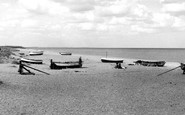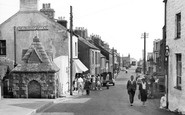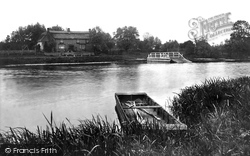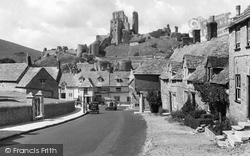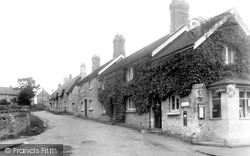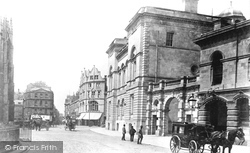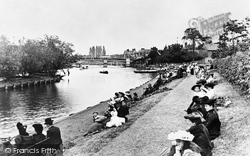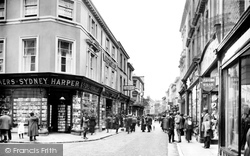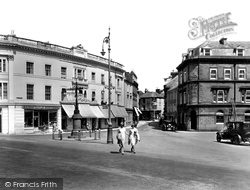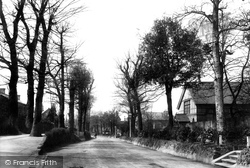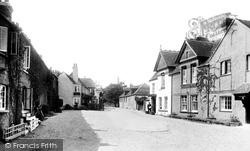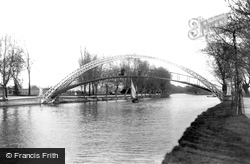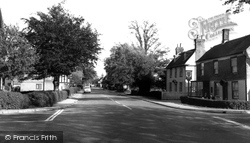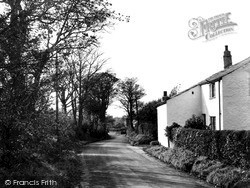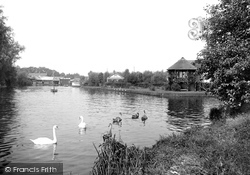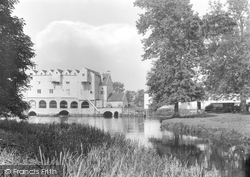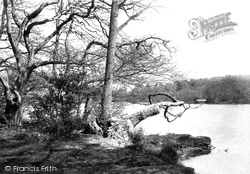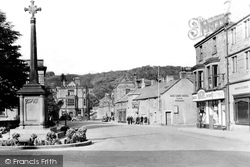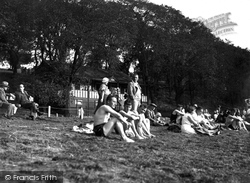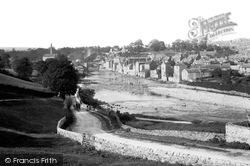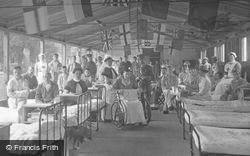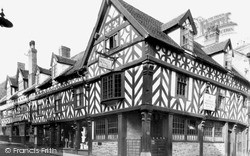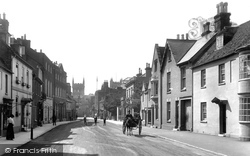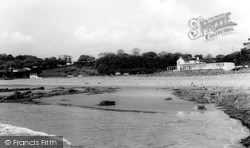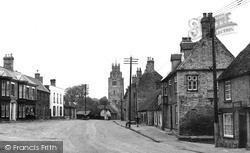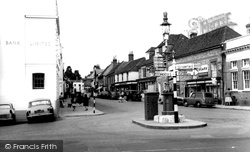Merry Christmas & Happy New Year!
Christmas Deliveries: If you placed an order on or before midday on Friday 19th December for Christmas delivery it was despatched before the Royal Mail or Parcel Force deadline and therefore should be received in time for Christmas. Orders placed after midday on Friday 19th December will be delivered in the New Year.
Please Note: Our offices and factory are now closed until Monday 5th January when we will be pleased to deal with any queries that have arisen during the holiday period.
During the holiday our Gift Cards may still be ordered for any last minute orders and will be sent automatically by email direct to your recipient - see here: Gift Cards
Places
11 places found.
Those places high-lighted have photos. All locations may have maps, books and memories.
Photos
54 photos found. Showing results 901 to 54.
Maps
494 maps found.
Books
25 books found. Showing results 1,081 to 1,104.
Memories
9,978 memories found. Showing results 451 to 460.
Happy Little Boy
Hi, I have been looking for a site like this so I could look back at Pinehurst. I was the longest serving boy at the home - went in at 8 and came out at 16. 1979 was when I started a good life there. I have so many great memories ...Read more
A memory of Pinehurst in 1979 by
School Years At Fowey Comprehensive
My name in the sixties was Marilyn Pooley, I lived at St Blazey and went to Fowey School. I have been raising my family for the last 40 years and now fancy looking back at my younger days. One of the things I ...Read more
A memory of Tywardreath in 1966 by
Hill House Sizewell
I remember Fred and Jack Fryer, and a son if I remember correctly who went in the navy. I would often wait on the beach at night beside their lantern which would guide them back to shore after an evenings fishing. Did Jack ...Read more
A memory of Sizewell in 1954 by
Home
i was brought up on big Cullamores Farm in the 50>s and 60<s , which borders the downs banks. I have many happy memories of roaming the Downs with school friends, it was our play ground. I am at the moment researching the farm and am ...Read more
A memory of Oulton Heath in 1959 by
Revistiing
I revisited Edern & Morfa Nefyn after my last visit which was in 1954 with my Mum and Dad as a 12 year old child. I remembered everywhere and my husband was worried I would be disappointed as things would have changed, but they had not. ...Read more
A memory of Nefyn in 2005 by
Pauldens Fire
My mum and dad married in September 1950. They had their reception at Pauldens. The week after, they were back, at the funeral of my dad's dad who passed away the day after the wedding. My mum said Pauldens burnt down just ...Read more
A memory of Hulme by
Harlow In 1950 1966
Hi, we also lived in Sharpecroft. The Last family moved there in 1956. Also went to Hare Street School. Can't remember our door number. Then we moved to Rivermill. Loads of happy memories, It was a lovely place to grow up in back in the 1950. Barbara Yeowell {Last}
A memory of Harlow in 1956 by
Life Until 40.
My family returned to South Ockendon in 1964, although both sets of grandparents were in South Road and Broxburn Drive. First lived in Clayburn Gardens, then in 1969 we moved to 34 Cruick Avenue. Small cul-de-sac, originally with ...Read more
A memory of South Ockendon by
Tooting From 1974 2009
I have very fond memories of Tooting. My parents and I moved to Fairlight Road in Tooting in 1974. My first memory of that is the smell of paint, and sausage rolls bought from the bakery shop just round the corner; the paint ...Read more
A memory of Tooting in 1974 by
Dacre Banks
I was born in Dacre Banks and remember the Wilsons very well, as my brother Peter and I used to play with them as kids. We lived at the bottom of the lane coming from the Wilson's house just across the road at Woodbine Cottage. I have ...Read more
A memory of Dacre Banks by
Captions
2,019 captions found. Showing results 1,081 to 1,104.
The rushes on the bank of the river were harvested for rush matting by the Arnold family; they were dried hanging over lines beside the river. On the other side is the Ferryboat Inn.
Originally the site of a Saxon hunting lodge, much of the present Corfe Castle, which gives its name to the stone-built village beneath, dates back to the troubled reign of King Stephen.
The post office is also a 'Savings Bank' and 'Money Order Office'. Bus timetables announce United Counties services.
Back into town, this view from Orange Grove looks along past Brydon's Municipal Buildings of 1893, 'rendered necessary by the large increase of public business since the erection of the central building
On the Windsor bank the non-Etonian spectators watch the Procession of College Boats. In the distance, lined with spectators, is the bridge, nowadays pedestrianised.
This shows the view looking back down High Street towards Boutport Street at the bottom. Butchers Row is on the left. The Sydney Harper building is now a travel agent.
Lloyds Bank - to the right - is now a pub.
Here we move back to the west of the High Street. This view looks along Cheam Road, with the Cheam Road Hall on the right.
We are looking back up the lane with the river behind us. On the right is part of the George Hotel, as it was then.
The ability to promenade from one bank to the other via this bridge was further enhanced with the opening in 2000 of another, known as the Butterfly Bridge.
Did they ever collect their pocket money from the Westminster Bank (right)?
There were six fords over the river Wyre: one was at Buck's Lane, Little Thornton, leading to Hambleton and Banks Farm.
On the far bank is an attractive thatched waterside summer-house which also acts as a boathouse.
This water-mill, powered by a hidden undershot wheel, stands on the bank of the river Bure, and is built of entirely of wood. There are two large millstones leaning on the small annexe.
Their natural curiosity led them to their death at the end of the funnel-like decoy pipe, whose entrance is to the right of the boathouse on the opposite bank.
The Red Lion public house and the National Westminster Bank in the centre of the picture are still there, but Burgon's grocery store (right) is long gone.
This summer recreation corner on the banks of the Wharfe lay below the present Collingham Wood House on the Wetherby road.
Stone-built weavers' houses, carpet weaving mills, and rope works all jostled for space along the banks of the river.
As more and more injured men came back from the front, a larger hut hospital was built on the playing fields of King's and Clare Colleges, with 'open-air' wards such as this one housing the patients.
Today the National Provincial Bank has been replaced by the Tudor House Hotel, which occupies the same building.
Opposite, two three-storey Georgian town houses (now the Job Centre and the Conservative Club) belonged 200 years ago to the Fryer family, founders of the Wilts and Dorset Bank and suppliers to the
The large extension at the back of the inn (right) contained seven bedrooms with doors onto the beach.
The struggle to drain the fen and maintain the banks of the rivers and lodes was endless. Celia Fiennes crossed the fens in 1695, and noted that the fens around Sutton were mostly under water.
The owners of these parked cars must be shopping. The first building on the left was Barclays Bank; today it is still Barclays, but it has had a fresh lick of paint.
Places (11)
Photos (54)
Memories (9978)
Books (25)
Maps (494)



